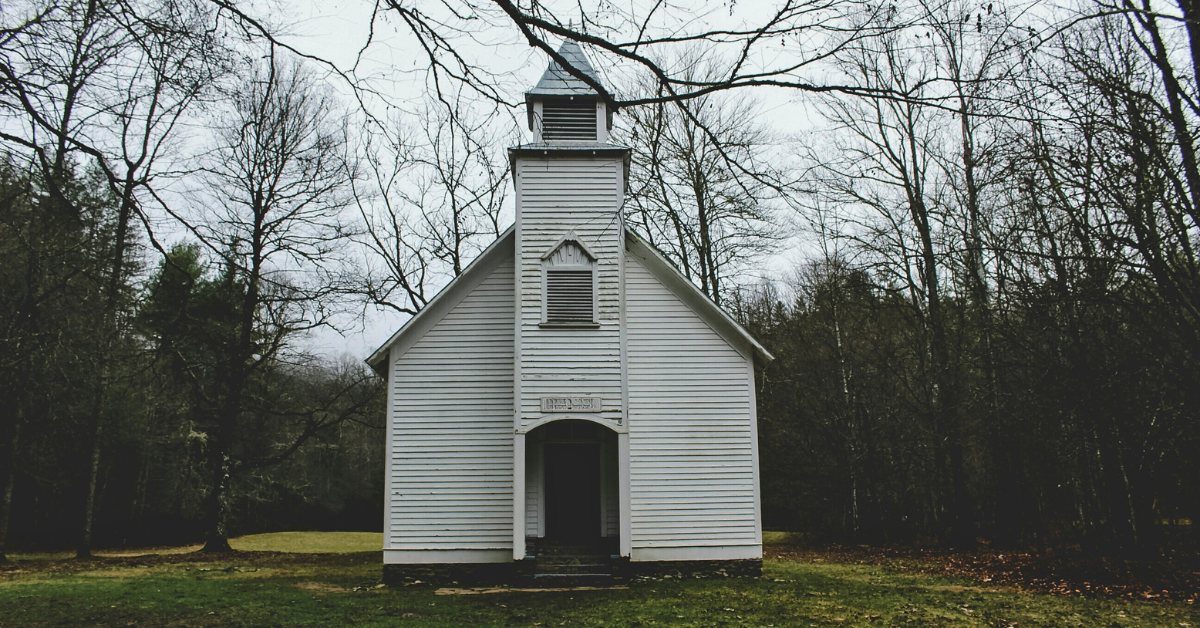Share Post – Follow Me
Summary:
The gospel is the foundation of a healthy spiritual formation journey. In this episode, you’ll learn more about biblical illiteracy, essential beliefs and how the gospel relates to your spiritual formation.
Podcast Transcript:
Welcome to Journey Together, a podcast for Christian women who want a deeper relationship with God. I’m your host, Brigette, and today we’re talking about how the gospel relates to Spiritual Formation.
Introduction
Ladies, I am undone. This past week has really shaken me, and I realized I was relying on human reasoning rather than God’s truth to shape and form me spiritually. Colossians 2:8 says, “Be careful that no one takes you captive through philosophy and empty deceit based on human tradition, based on the elements of the world, rather than Christ.” This is a perfect explanation of what has me so undone right now, and I want to share my mistakes with you so that you can also grow through them.
Spiritual Formation by Henri Nouwen
Last week, I was reading Spiritual Formation by Henri Nouwen, and I came across this statement: “I came to realize that the differences between Catholic and Protestant, Christian and Buddhist, religious and secular were not the kind of differences I thought they were; that there was a deeper unity below the surface of distinction.”
So I paused, and read that again. And again. And I’m thinking, “is he going where I think he’s going with this?” And yes, he did.
I finished the chapter, did some research, and, towards the end of his life, Nouwen believed that people could be saved, even if they didn’t know Christ. Buddhist and Hindu monks praise his work, and one of his books has a foreword written by Sue Monk Kidd, a leader in feminist theology and a believer in the Divine Feminine. Which I had to look up, because that was new terminology for me, and basically she believes there is a female counterpart to God.
Ladies, I was floored. I had trusted this man to lead me in true, biblical Spiritual Formation, and he teaches a very unbiblical message.
Biblical Illiteracy
Now, I want to clarify, I am not trying to humiliate this man’s work or lambast him for his misguided statements. This is actually the second book of his I’ve read, and I really enjoyed the first book, although I do wonder if I may have missed some things. I’m not here to tell you not to read any of his books or to vent about his unbiblical doctrine. My reaction actually comes from a deeper concern.
In the last hundred years, the church has done a terrible job of shepherding its people. Yes, there are individual churches here and there that have done well, but as a whole, we have been doing a terrible job. And the result is an epidemic of biblical illiteracy.
In an article by Karen Engle, she defines biblical literacy as: “the ability to rightly read and understand the Bible by using the proper tools of study to become better acquainted with its essential nature and content and then apply discerned meaning to life.”
The part I want to focus on is that last phrase: “apply discerned meaning to life.” We need to know scripture so that we can apply it properly to everyday life. And my concern is that our lack of scriptural understanding is keeping us from being able to recognize whether something is good or evil.
The Role of Women
My other concern is that we are women and, historically, many churches have told women they are incapable of reading and understanding the Bible without the help of a pastor. Satan has used this lie to keep women from really diving into their relationship with God and learning all that He has for them.
My hope is that you, beautiful woman of God, will learn that God wants a deep relationship with you and that you will feel free to pursue Him without worrying whether you are smart enough to know it all. You’ll never know it all. I certainly do not know it all.
But, as women of God, it is our responsibility to study the Word of God and to know it. Ephesians 6 says it is a “sword” to fight our spiritual battles.
So, before I go any further, I just want you to know you are capable, you can be discerning, and God has given you all that you need in His Word and through the Holy Spirit to fight the spiritual battles you will face. So let’s jump right into this and start by defining Spiritual Formation.
Define Spiritual Formation
I’m not going to spend a ton of time explaining Spiritual Formation for you today, just because we have a lot of stuff to cover. I wrote an article on it last year and you can find the link for it in the show notes if you want more information.
In short, Dallis Willard defines Spiritual Formation like this:
“Spiritual formation in the tradition of Jesus Christ is the process of transformation of the inmost dimension of the human being, the heart, which is the same as the spirit or will. It is being formed (really, transformed) in such a way that its natural expression comes to be the deeds of Christ done in the power of Christ.”
We are all spiritual beings, so we are all experiencing some sort of spiritual formation whether we call it that or not. But, as Christians, our Spiritual Formation should make us look more like Christ.
And that’s my passion. I want to help women on their spiritual formation journey to become more like Christ. That’s why I coach, that’s why I make this podcast; my goal is to help women become more like Christ. And that starts with having a good understanding of what you actually believe in: the Gospel.
Define the Gospel
The word gospel literally means “good news” so the gospel of Jesus Christ is the “good news of Jesus Christ”. And what is that good news? To understand why Jesus is good news, we have to go back to the beginning. And if you’re familiar with the gospel, stick around, because it’s worth making sure you didn’t forget something.
Genesis 1:1 says, “In the beginning, God created the heavens and the earth.” In the beginning God made the world and everything in it, including us. And there was no sin in the world. It was a perfect paradise. But God gave the first humans, Adam and Eve, one instruction: that they not eat from the tree of the knowledge of good and evil. And one day, they did.
And when they did, sin and death became a part of our world. Adam and Eve realized they were naked, and their bodies started to age and eventually, just like we do, they died. But God didn’t want us to die; He wanted to spend eternity with the people He created. So He came up with a plan. And throughout the Old Testament, we see prophets come and share how a Savior will come and save us from our sin so we can spend eternity with God.
Salvation Comes
Then comes the Savior, Jesus. God’s Son in literal flesh. He dies to pay for all of the sins we will ever commit. And then, because He’s God, He rose from the dead. He told His disciples to tell everyone that He died to save them and then rose from the dead, and they can rise from death too, because by His death, He made a way for us to live.
But, Jesus made it clear that this was a gift from Him that had to be accepted. He also made it clear that this is a gift that can ONLY come from Him. He said in John 14:6, “I am the way, the truth, and the life. No one comes to the Father except through me.”
And that’s what started to make me so uncomfortable with the book I was reading. Towards the end of his life, the author started to believe that people could be saved without Jesus, and his writing reflects that belief.
Essential vs. Non-essential Beliefs
You might be wondering, “does this really matter? Why is there such an issue with this one, unbiblical idea?” So, let’s talk about the difference between essential and non-essential beliefs.
Churches have started to use this terminology in their membership documents and I am loving it. You see, essential beliefs are beliefs that are essential for salvation. These are pretty basic things like, there is only one God, Jesus is God’s Son, God sent His Son to die for us so we can experience eternity in heaven, etc. Non-essential beliefs are issues we grapple with in our spiritual life that don’t have direct bearing on our salvation.
For example, I grew up in churches that did not approve of drinking alcohol. If you became a member at that church, you agreed that you were not going to drink alcohol. Now, most churches recognize this as a non-essential belief, and most churches only require you to agree with essential beliefs to become a member there.
One of these essential beliefs is that Jesus is the ONLY way to heaven. Scripture says so repeatedly: in John 3:36, John 14:6, Acts 2:21, Acts 4:12, and the list goes on. The Bible is very clear that Jesus is the only way to heaven.
We are constantly bombarded with unbiblical ideas, even in Christian books! That’s why it’s so important to be in the Word, and let that Word have the final say.
Universalism
Now, let’s get technical for a minute. The concept Nouwen believed in is called Universalism. It’s the belief that all will be saved. This belief sounds good on the surface, but in reality, it goes directly against what we read in scripture. For example:
- Scripture tells us there will be people who don’t go to heaven. In Matthew 25, Jesus shares several parables about what will happen at the end of time. In short, He says God will proclaim “I never knew you!” to those who aren’t saved and tell them to “Depart…into the eternal fire prepared for the devil and his angels!”
- This idea calls the Great Commission into question. In Matthew 28:19, as Christ ascended into heaven, He commanded His followers to “go…and make disciples of all nations.” If everyone was going to be saved, why would the disciples need to share the gospel? In other words, what would we be “saved” from?
This is heavy stuff. I don’t want to make light of a difficult topic. I really lean into God on this one. It’s hard to think that not everyone will be saved. But that’s also kind of the point. If we truly believe that we are saved from something terrible, we will want to save others. But if we believe that they will be saved even if we don’t share the gospel, then the gospel isn’t really “good news”, it’s “old news”. It’s “yeah, some guy did something to save my soul and now I can do whatever I want.” And that’s not the message we see reflected in scripture.
We see a call to transformation. A call to become more like Christ. Basically, we see a call to Spiritual Formation.
Colossians 3
I think Colossians 3 is one of the best Spiritual Formation passages we have. I’m going to read through it, but to save time, I am going to skip around a little bit. I encourage you to read through it from start to finish when you have the time. Starting in verse one we read:
“So if you have been raised with Christ, seek the things above, where Christ is, seated at the right hand of God. Set your minds on things above, not on earthly things. For you died, and your life is hidden with Christ in God….(You) have put on the new self. You are being renewed in knowledge according to the image of your Creator…. Therefore, as God’s chosen ones, holy and dearly loved, put on compassion, kindness, humility, gentleness, and patience, bearing with one another and forgiving one another if anyone has a grievance against another. Just as the Lord has forgiven you, so you are also to forgive. Above all, put on love, which is the perfect bond of unity. And let the peace of Christ, to which you were also called in one body, rule your hearts. And be thankful. Let the word of Christ dwell richly among you, in all wisdom teaching and admonishing one another through psalms, hymns, and spiritual songs, singing to God with gratitude in your hearts. And whatever you do, in word or in deed, do everything in the name of the Lord Jesus, giving thanks to God the Father through him.”
Colossians 3:1-3, 10, 12-17
Called to Spiritual Formation
This is the Spiritual Formation that we are called to. To “set our minds on things above”, to see ourselves “as God’s chosen ones, holy and dearly loved”, and to “put on love” in our interactions with others. We are called to a spiritual formation that makes us look more like Christ. Like Dallis Willard said,
“It is being formed (really, transformed) in such a way that its natural expression comes to be the deeds of Christ done in the power of Christ.”
As we become more like Christ, we begin to do His work automatically through the power He’s given us in His Holy Spirit.
Conclusion
This was kind of a heavy topic, but I’m hoping my overall message got across. Ladies, we can study the word of God. We can be discerning when it comes to knowing what came from God and what did not. We can build deeper relationships with God and learn more about Who He is and who He made us to be. I am passionate about helping you do that, so I hope you stick around.
Next week, I’m going to talk about how to use extra-biblical resources responsibly because it’s hard to study the Bible without help! Understanding the cultural and historical context of what we read in scripture is important, and that’s not something we can easily do on our own. So we’re going to talk about how to use resources outside of scripture, and I’ll give you some recommendations for some great resources for Bible Study. And the best part, most of them are free!
So, I’ll be back here next Tuesday, and in the meantime if you want to keep in touch, you can join my email newsletter by going to my website, brigettehenry.com or by clicking the link in the show notes. Or you can send me an email, which you can also find in the show notes. I would love to hear from you!
That’s all I have for today. I’m praying for your spiritual formation that God leads you in the truth of His Word and that you find peace in knowing He is with you every step of the way. I’ll see you next week! Bye!
Links:
Music by: Morning Garden – Acoustic Chill by Olexy on Pixabay
My website: https://brigettehenry.com
Interested in 1:1 coaching: https://brigettehenry.com/coaching
Subscribe to my weekly email: https://brigettehenry.com/subscribe
Spiritual Formation Blog Post: https://brigettehenry.com/what-is-spiritual-formation-and-why-does-it-matter/
Biblical Literacy Article: https://www.logos.com/grow/biblical-literacy/
Dallis Willard Quote: https://dwillard.org/articles/spiritual-formation-what-it-is-and-how-it-is-done
Contact me at: brigette@brigettehenry.com
All scripture is CSB (Christian Standard Bible)
Share Post – Follow Me






